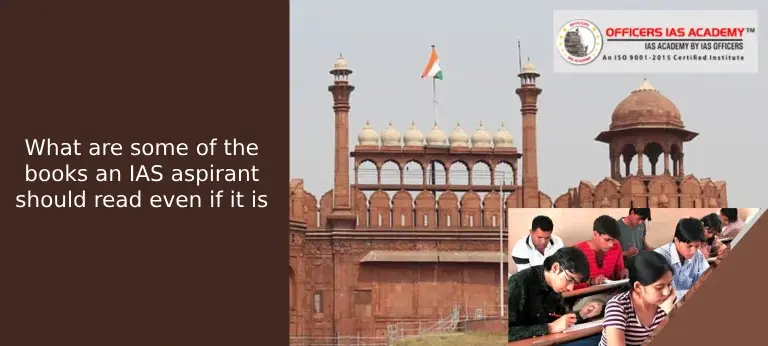The UPSC Civil Services exam is a highly competitive and comprehensive examination that demands extensive preparation. Aspirants often struggle with managing the vast syllabus and retaining crucial information for quick revision. The art of crafting short and crisp notes is a skill that can significantly enhance one’s exam preparation. In this article, we will explore effective strategies to make topics concise and impactful for your UPSC notes. By implementing these techniques, you can streamline your study process and improve your chances of success in this prestigious examination. Please keep in mind that each aspirant is unique, therefore some like to study with small notes while others take detailed notes on all they learn. You should use whatever strategy, whether it’s taking brief or detailed notes, that work for you. Therefore, I implore you not to mindlessly adopt someone else’s style as it can be ineffective. However, fully avoiding your notes is also not a good idea because they enable you to solidify key ideas and speed up your exam preparation. Click here to watch the video of our student Aswathy Jiji, IPS (AIR 41) on why you need your own handwritten notes for Mains. In essence, taking notes may be considered an art, and there are many instruments available. Some of the tools that can be used are listed below:
- Grasp the Core Concepts: The first step in making a topic short and crisp for your UPSC notes is to thoroughly understand its core concepts. Engage with the study materials, textbooks, and reliable sources to identify the main ideas and key points. Having a strong grasp of the fundamental aspects will help you focus on what is essential while condensing the information.
- Use Bullet Points: Bullet points are a powerful tool for presenting information concisely. Organize your notes into clear and structured bullet-point lists. This format ensures that key points are highlighted, making it easier to comprehend and recall during revisions.
- Eliminate Redundancy: Avoid repetition in your notes to maintain their brevity. Redundant information not only clutters your notes but also hampers efficient study. Focus on presenting unique and important aspects of the topic.
- Employ Simple Language: Utilize straightforward and clear language in your notes. Avoid overly complex terminology or jargon that may hinder your understanding. Crisp notes are easily comprehensible and facilitate quick revision.
- Prioritize Key Information: The UPSC syllabus is vast, and candidates must prioritize essential information to optimize their preparation. Identify the most crucial aspects of the topic that align with the exam syllabus and concentrate on them. This selective approach ensures efficient use of study time.
- Exclude Non-Essential Details: Resist the temptation to include every intricate detail in your notes. Focus on the critical elements that are relevant to the exam. Excluding non-essential information will make your notes more concise and easier to review.
- Utilize Visual Aids: Visual aids, such as flow charts, diagrams, and tables, can help summarize complex information effectively. These visuals create a clear representation of relationships and concepts, aiding retention and quick recall.
- Mind-maps: When a large amount of data about a single issue spans a variety of dimensions, mind maps can be employed. Because they need a lot of time and space, using mind maps directly in the Mains examination is not possible. However, you may utilize mind-maps in your notes to fully cover all the aspects of a single topic in the smallest possible amount of space. However, the time needed to create such mind maps may consume some of your valuable time. You may utilize the mind maps generated for important topics by clicking this link so that you can use them straight away.
- Create Mnemonics: Developing mnemonics or memory aids can significantly improve your retention of important points and formulas. These memory devices serve as shortcuts to remember key information during the exam.
- Summarize in Your Own Words: Paraphrase information while making notes to internalize concepts better. Expressing ideas in your own words helps you understand the material more deeply and aids in retention.
- Regularly Review and Edit: Regularly review your notes and edit them to ensure they remain concise and up-to-date. Continuously refine your content to strike a balance between brevity and clarity.
As I’ve previously stated, taking notes is an art, and it may be your best tool for revising and achieving excellent scores. Therefore, focus on writing effective notes to save time while revising. Please be as clear as you can with your revision notes. You may decide whether to include mind maps, flowcharts, and diagrams in it. However, since you might utilize the same ones for your Mains exam, it is usually preferable to write them down in your notes. As they are previously utilized in your notes, it will be more qualitatively superior and save you time while you are writing the exam. Please make sure that the revision notes you create are appropriate for your purposes, and I once again ask that you refrain from copying anyone else’s note-taking approach, even if it’s a topper. In conclusion, mastering the art of crafting short and crisp notes is crucial for effective UPSC Civil Services exam preparation. Understanding core concepts, employing bullet points, avoiding redundancy, and using visual aids are essential strategies. By practicing these techniques and consistently reviewing your notes, you can optimize your study process and excel in the UPSC Civil Services exam.

